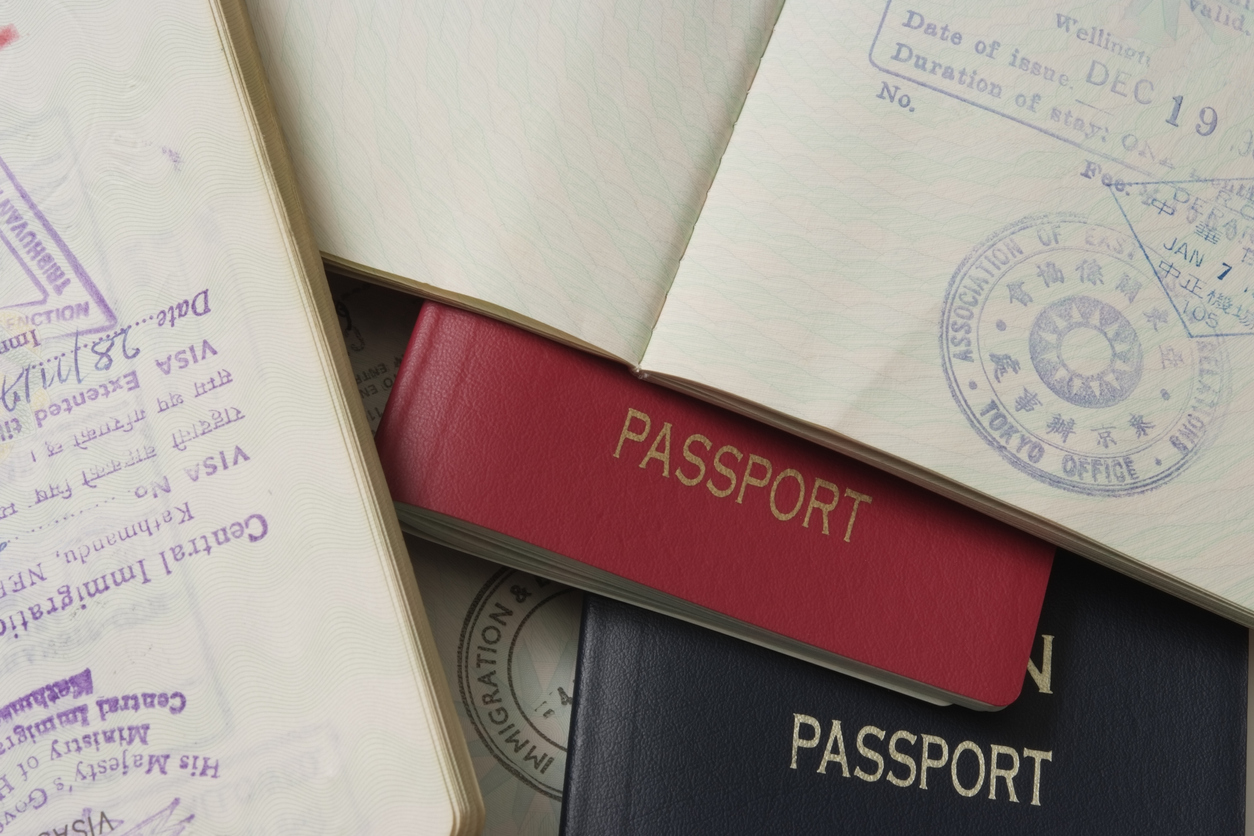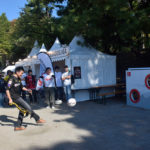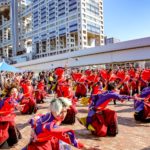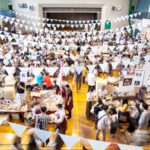The Tricky “Where Are You From?” Question in Japan
On Navigating It And The Conversations It Can Spark
A nuanced question with loaded subtext, or an innocent query? People describe how they field the context of this question in Japan and elsewhere
Living abroad is an exciting and at times delicate beast to behold. One of the first prolific things I noticed when trapezing in and outside of state and country lines was the near-constant reminder of being asked to know who I was, where I came from, and to be able to explain my background succinctly.
Identity, where nationality intersects with ethnicity to compound the complexity of you
Appearance, voice, accent, even the way I carry myself signifies different things to different people in a way I have not been able to contain. On occasion, I’m mistaken for being from somewhere else, sometimes questioned even in my home country.
It’s a curious, interesting thing: identity, where nationality intersects with ethnicity to compound the complexity of you. An equation that is somewhat the sum total of your parts, plus or minus the other experiences that also may have defined you nonetheless.
“Where Are You From?”
In the six years that I’ve lived in Japan, a country that is 98% Japanese, it is no surprise that it has become commonplace to have to identify myself and where I’m from on a regular basis.
My approach and my reaction to this seemingly uncomplicated “Where are you from?” question have changed over time. Perhaps that’s due simply to the number of years I’ve spent fielding it in a homogeneous country as a semi-mixed person.
Conversely, it could be that the question doesn’t comprehend the complexity of which I’ve come to associate it with, especially depending on who’s asking and why. That said, I like to keep things simple. “The states,” is my usual response, or sometimes even, “I live in Tokyo.”
In order to better understand the subtleties of this location-identity phenomena myself, I reached out to thirteen people to see how they navigate this question and the conversations born from it.
An Innocent Question, A Frustrating One
Interviewees responded that they were, for the most part, unbothered or trying to be unbothered by being asked “Where are you from?” in Japan.
Of the thirteen people interviewed, nine of them mentioned the same word in their answer: curious, or curiosity, usually citing that if the asker was Japanese, the question was most likely coming from an innocent, “curious” place.
Despite understanding what seems like an innocuous intention, some interviewees cited feeling frustrated due to the sheer amount of times being asked in a week, and to the implication that being asked, identified someone as being different or other than the asker.
Bran, 30, who has been living in Japan for six years, advocates that his feelings on this question have been the same since year one of living in Japan: he doesn’t mind it at all.
Of the thirteen people interviewed, nine of them mentioned the same word in their answer: curious, or curiosity
When Japanese people ask him where he’s from he begins by prompting them to guess.
“Almost 90% of the time [they say] that I am from Africa.”
He continues. “When I tell them I am from Jamaica most people [believe] Jamaica is in Africa, which is a fair assumption. I use these opportunities as a chance to teach people about my home country, Jamaica.”
No Place To Hide
Likewise, Tia, 31, U.S., who has lived in Japan for eight years, emphasizes that the question doesn’t always carry the same weight that it may in other countries.
She says, “In Japan, I feel it’s safe to give folks the benefit of the doubt that the asker is genuinely curious.”
Tia wasn’t alone in this comparison. Madeline, 23, a Canadian who has been living in Japan for over a year suggests that it’s reasonable for Japanese people to ask.
“With such a firm ethnocultural identity, it seems only natural to me that Japanese people might be curious as to where I come from. There is no hiding my “otherness” in Japan. In Toronto, a tourist from any country could easily go undetected, so long as they leave behind their bulky bags and “I <3 Toronto” T-shirts. Here, even in the megacity of Tokyo, that kind of experience isn’t possible.”
There is no hiding my “otherness” in Japan
After living in Japan for ten years, Lena, 25, from Russia communicates her unease with the question and being visually identified as “other.”
“As any foreigner or a person not typically looking Japanese in Japan, [I] frequently get asked this question on a daily basis. Sometimes even my Japanese friends who were born here [and] whose mother language is Japanese get asked where they are from just because they don’t look like a typical Japanese person because of mixed blood. This is so irritating, and the most exhausting and boring question ever. It’s [like] “Ughh, here we go again.”
Kelly, 25, a Vietnamese Canadian, who has lived in Japan for three years, expresses that it depends on who’s asking.
“When it’s a Japanese person [asking] I am a little indifferent because I understand that an Asian face like mine can easily be mistaken for Japanese. Being asked where I am from is an honest curiosity on their part that I try to not take offensively.”
Kelly considers the fact that her Japanese language skills aren’t high, which she believes contributes to the gap in conversations surrounding or prompting the “where are you from” question.
“[I’m] filled with a tinge of guilt that I should be able to blend in more, or that I, out of other foreigners of different races, should have some sort of upper hand in blending in because of my race, even though I am just as entitled to identify as being Canadian/North-American/Native English speaker.”
But Why Are We Asked Anyway?
Born in Sri Lanka, but raised in the U.S. since the age of two and a half, Sawin, 28, has been subject to the balancing act of attempting to define his own identity in both countries ever since.
The idea that I’ll forever be looked on as an outsider is unsettling
Having lived in Japan for six years now, Sawin reasons that his reaction to this question in Japan ranges from positive to negative.
“In Japanese, the question comes with the assumption that you’re not from here. For me, all those assumptions are true but knowing that didn’t make it less frustrating. That’s not to say that I want to be from here, but I’ve lived here for a while and I’ll be here a while more. Maybe for the rest of my life. The idea that I’ll forever be looked on as an outsider is unsettling.”
Sawin laments the times when he feels adverse about being asked and finds himself actively trying to change his own mindset in regard to this question.
It Depends On The Context
Each of the interviewees had their own stories. Both in and outside of Japan, a multitude of “where are you from” experiences unfold.
For most people, how they felt about being asked this question was largely contingent on the country they were in, and perhaps most importantly who was asking the question and why.
Sareen, 25, Armenian-American from Los Angeles talks about her “white-passing” experience in the U.S.
“Before coming to Japan, I always regarded this as a prying question directed to people who look “exotic.” For example, a male Uber driver kept asking my Chinese-American friend [where she was from]. He was not satisfied by the answer “San Francisco,” and he obviously wanted to know what Asian ethnicity she [was] so that he could comment on that and try to flirt with her.”
Sareen narrates that she received an altogether different impression when she moved to Sendai.
“In Japan, I learned over time that [asking where you’re from] was almost an icebreaker/small talk question, and I got excited to use it as an educational opportunity to tell Japanese people about my parent’s immigration story from Lebanon and Armenia, even though I’m US-born.”
But It Can Also Feel Unnecessary
Lisa, 27, Japanese-American born in Los Angeles, relates her story.
“To be honest, it doesn’t bother me in Japan. I never feel the need to have to back up my answer or prove that I’m from America […] My parents are both Japanese, and I was born and raised in the U.S. […] Since I look Japanese, people [usually assume] I’m from outside of Tokyo, not a different country […]”
Lisa, who has now lived in Japan for five years, imparts that the distress of the question comes from being asked by non-Japanese people.
“I actually get a lot more skeptical responses when I tell non-Japanese people that I’m from America. They seem more shocked, and I’ve gotten comments like “no wonder your English sounds so fluent,” which I feel is condescending and unnecessary.”
This is a question that is borderless, I get asked this question almost everywhere I go
Bran reflects on the different situations he encounters when he travels internationally.
“This is a question that is borderless, I get asked this question almost everywhere I go. However, the way it is asked is different. […] Europe and America are experiencing a rise in nationalism right now and the political atmosphere there makes me feel sometimes unwelcome or even threatened.”
Response and Reaction Exhaustion
Sometimes it wasn’t the question itself that raised concerns with some interviewees, but the responses that followed. Interviewees describe a world where the asker is at times aggressive, unknowing, or disbelieving. This resulted in a somewhat tired group of people having to explain who or what they are.
Shifa, 26, who is half Ugandan and half Japanese, describes scene after scene of being questioned and even refuted.
I’m a foreigner everywhere
“In my life, people always ask me so I’ve gotten used to it, but sometimes I get annoyed because if I just say “I’m from Japan” people don’t believe me. I have to explain in more detail and I feel denied. Even though I believe myself that I’m Japanese, other people don’t believe it. Something similar happens when I’m in Africa—I’m a foreigner everywhere.”
“This question is as normal as sliced bread.” Says Tia, when asked about how she feels being asked. However, she says her relationship to the responses she receives after telling people has been a bit “up and down.”
She continues, “As soon as ‘America’ left my lips, the person (mostly from a Commonwealth nation) would bash me, and my country for this and that without really taking into account that I am 1) a black American and 2) living far away from the US in Japan. These folks would be on their soapboxes for so long, I almost started to think I was the one flying drones in war zones and killing the world one Big Mac at a time or whatever the complaint was.”
It Can Lead to a Political Debate
Other interviewees from the U.S. reported congruent political concerns. “I always tell people where I am from. Although sometimes I wish I could say “Canada” because Trump is an embarrassment.” Says Brooke, 31, U.S., who has lived in Japan for four years.
Similarly, Lisa, says “After Trump got elected I stopped calling myself “American” or “from the US.” I usually stick to “I’m from LA”.
[My response] did change to the point where I just say “Guess where I’m from” and sometimes I just say “yes” to whatever they answer
Eli, 24, half Lebanese and Saudi Arabian, says “I don’t get bothered by the question, only trying to explain it. I’ve been asked where I am from way too many times. At the beginning it was kind of okay since people want to know, but when I say, ‘Lebanon,’ only very few know where it is, so I have to explain every time, and bit by bit I started not to explain [because] it was too much work. [My response] did change to the point where I just say “Guess where I’m from” and sometimes I just say “yes” to whatever they answer.”
Eli describes the variety of reactions from people, stating that “Some people are worried because it’s the Middle East, [others] get excited and either tell me how good the food is or how beautiful the sights are.”
In Summation: The Complexities and Joys Of Telling Your Story
For Melody, the complexity comes in explaining her name. She explains that people often ask her if “Melody” her real name, and if it has kanji.
“In explaining my name, I always tell them that my Dad is English and it’s my middle name, so they usually don’t get the chance to ask me where I’m from!”
If they ask things in a charged/angry manner, the best way to shock them is with kindness
When Melody does get asked where she is from, she “gives them the whole story,” with glee. “I’m mixed, my Dad is from England and my Mum is from Japan. I was born in London, moved to Japan when I was 1, moved back to England when I was 12, came back to Japan when I was 25, and for now, I’m settled in Tokyo – believe it or not, I actually never get bored or tired telling people this.”
Steffie, 28, Korean/Filipina/British Mix, from the US/Philippines recollects that her response to the “where are you from” question has changed.
“I used to be annoyed by it. But that was when I was lacking a lot of self-confidence and was confused by my identity. At this stage of my life, I am confident and proud of who I am, and I don’t judge other people for their biases — it’s just a testament to their surroundings and how they were raised. If they ask things in a charged/angry manner, the best way to shock them is with kindness.”
Where Are You From… And Who Are You?
Throughout these interviews, I encountered nuance, variation, and a medley of stories. Asking someone, where they’re from, does come with subtext, and sometimes the question though loaded and even personal, can come from an innocent place. It is improbable for some of us to hide as foreigners here, and elsewhere—and what is “foreignness” anyway?
Many interviewees related their desire to be seen as human first, nationality and ethnicity second, although some did express pride in where they were from and an affirmation of not caring how people responded to that.
In a world that has always been hyper-aware of identity and “difference,” and one that is, in recent times, dangerously threatening “otherness” as a way of not belonging, perhaps our discussions, and our willingness to embrace ourselves can help us all navigate to a safer atmosphere in Japan, and beyond.
To put it in Shifa’s words: “I lost my identity…What should I call myself? But [then] my good friend told me, ‘Don’t define yourself. Shifa is Shifa. You are so lucky to be unique.’”
















Leave a Reply